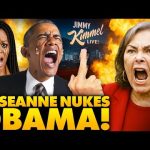The Department of Homeland Security’s decision to classify Antifa as a domestic terrorist organization marks a long-overdue recognition of a threat that has been evident for years. For too long, America has watched masked mobs take over public streets, torch businesses, assault law enforcement, and intimidate citizens under the guise of “anti-fascism.” To call these acts anything less than terrorism is to willfully ignore the textbook definition: the use of violence and intimidation to push a political agenda. This move by DHS is not about silencing dissent—it’s about ensuring that violence is not normalized as an acceptable form of protest.
Antifa’s activities, particularly in cities such as Portland, demonstrate how easily passion can descend into chaos when unrestrained by law or morality. What began as demonstrations morphed into sustained campaigns of destruction: the occupations of public parks, the barricading of city streets, and the nightly clashes with police turned these cities into virtual war zones. Antifa’s actions forced law-abiding citizens to live in fear, with some businesses resorting to posting sympathetic slogans simply to avoid being targeted. That is not protest—it’s extortion by threat.
History is replete with warnings about movements that cloak themselves in the banner of “justice” only to wield tyranny. The French Revolution’s Reign of Terror serves as one chilling parallel: ideals of freedom and equality were perverted into spectacles of violence and repression. Antifa mimics the same historical pathology—wrapping themselves in lofty rhetoric while excusing destruction and intimidation as necessary tools for change. But once ideology justifies violence, no one is safe, and liberty itself stands on shaky ground.
This designation by DHS also forces an important national conversation about where free speech ends and terrorism begins. America cherishes the right to protest, but those rights do not extend to Molotov cocktails, assaults on police, or vandalism that costs communities billions in damage. The distinction is clear: peaceful protest is part of democracy, but instilling fear to silence opposition is terrorism, no matter who does it or what cause it serves. For years, the media has hesitated to call Antifa out, perhaps out of ideological sympathy, but the reality is finally catching up—violence cannot be excused by political alignment.
The hard truth is that refusing to name Antifa’s violence for what it is has emboldened them. By officially recognizing it as terrorism, America takes an important step toward restoring order, protecting communities, and reaffirming the principle that political change must come through debate, persuasion, and the ballot box—not anarchist mobs in the streets. If our society is serious about defending freedom, then it must stand firmly against violent extremism, regardless of whether it wears a hood on the left or waves a banner on the right. To do anything less is to allow fear and intimidation to erode the very foundation of our republic.




